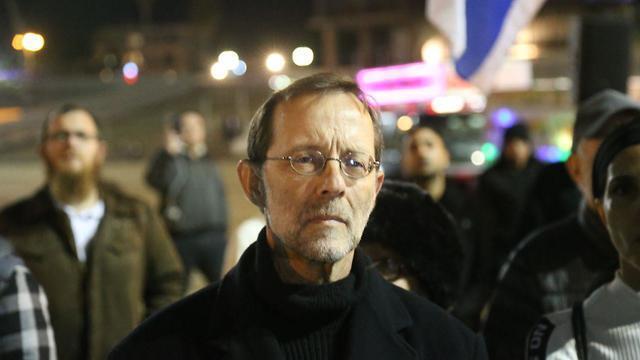Getting your Trinity Audio player ready...
Marijuana is becoming an election issue in Israel now that an upstart far-right party that favours legalizing the drug seems to be drawing voters away from conservative Prime Minister Benjamin Netanyahu.
and Twitter
Opinion polls originally showed the party, Zehut, would fail to win even a single seat in parliament in the April 9 ballot. But its ultra-nationalist leader's focus on decriminalizing cannabis has resonated with voters.
3 View gallery


Moshe Feiglin, leader of far-right party Zehut that supports the legalization of marijuana (Photo: Moti Kimchi)
(צילום: מוטי קמחי)
Polls this week predicted Zehut would take at least four seats in the 120-member legislature, giving it a possible linchpin role in the formation of a future coalition government.
Usually focused in his campaign on national security challenges, Netanyahu said he is pondering the issue of cannabis.
Asked on a TV channel run by his right-wing Likud party about decriminalization, Netanyahu said: "I am now looking into the question that you raised. I will give you an answer soon."
In the meantime, he said, Israel has increased the use of medical cannabis "to one of the highest levels in the world."
Recreational use of marijuana is illegal in Israel, but its possession was recently decriminalized. Since first legalized in the early nineties, medical marijuana is becoming increasingly available in the country and private companies are working to make Israel a major exporter of the crop.
But as a country with large, religious Jewish and Muslim communities, Israel had long frowned on drug use of any kind. Admission of pot-smoking could once disqualify a young Israeli from mandatory military service or a civil servant from office. These days, however, the IDF uses marijuana to treat soldiers with PTSD.
On Tuesday, Israel's police said they had arrested 42 people suspected of using Telegrass, an encrypted messaging service for selling drugs that enabled Israelis to use an app on their smartphone to order marijuana delivered to their door.
Likud and its strongest challenger, the centrist Blue and White party, which has not taken a position on marijuana legalization, are locked in a closely contested race.
Joining the debate, Avi Gabbay, head of the center-left Labour party, said on Army Radio that he himself had smoked pot and it was time to "get out and join real life" in keeping up with Western leniency on its recreational use.
The Knesset in December approved the export of medical cannabis, a field that the finance and health ministries estimate could reap $265 million in taxes a year. There are eight cannabis cultivation companies in Israel.
Shares of medical cannabis firm Tefen jumped 13 percent, while other cannabis producers were 2.6 percent to 7 percent higher on the Tel Aviv Stock Exchange after Netanyahu's remarks.



